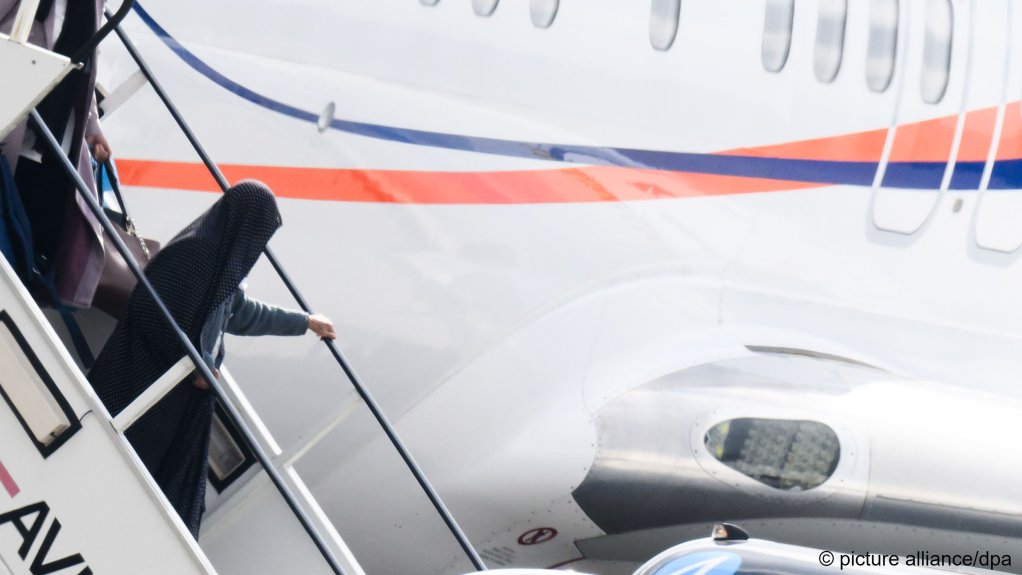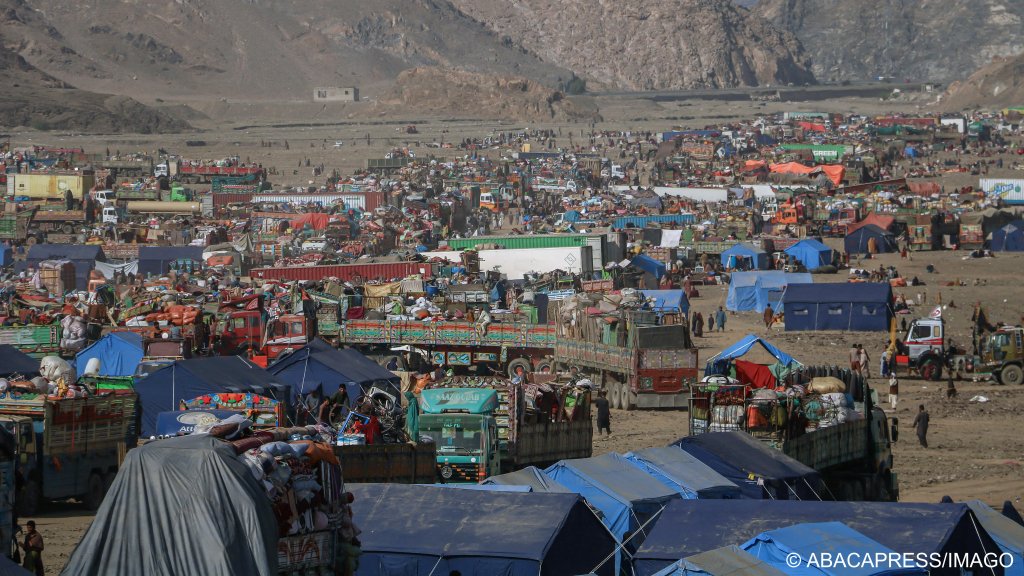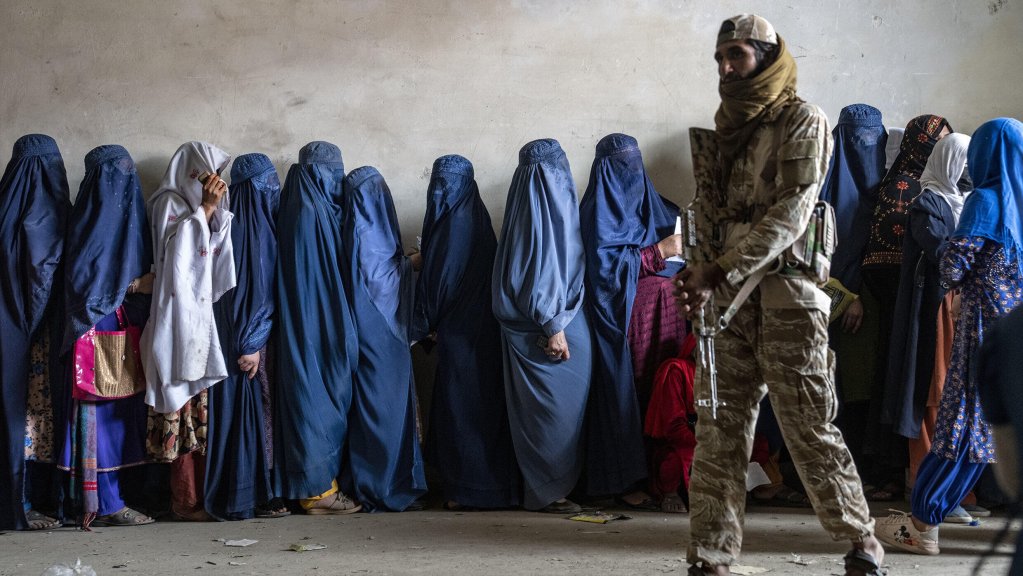A total of 174 Afghan nationals arrived in Germany on Thursday. They arrived as part of a number of different reception programs available to some asylum seekers from the Central Asian nation. Another such flight is expected to arrive before the end of the month.
Germany's Federal Ministry of the Interior announced that a flight from Islamabad, Pakistan, had landed in the northern city Hanover in the morning hours of Thursday (March 27). The group included 82 women and 92 men, according to the ministry's information, with 74 of them under the age of 18, including nine children under the age of two.
Another flight with Afghans coming from Islamabad is expected to land in Hanover later this week.
Earlier this month, 132 Afghans were brought to Germany in a similar manner, which was preceded by another similar initiative in February, which resulted in another 155 Afghans arriving in Germany.
Some of them have reportedly been waiting for years to be taken to Germany after qualifying either as former German government staff or aids in Afghanistan, who might suffer repercussions from the Taliban government, or people identified by NGOs as particularly susceptible to suffering persecution in Afghanistan.

A costly wait
All of the new arrivals were people that the German government had already promised to accept in the past. The authorities assured reporters that none of the arrivals were new or recent applicants to the programs available to Afghans.
In many cases, the German government has been paying for the accommodation and basic needs of these people in the months during which they had been waiting in Pakistan to be cleared for travel to Germany.
According to information cited by the RND network, the bill for accommodation, board, medical attention and psychological help has surpassed 82,7 million euros since these programs were formalized in 2022.
Read AlsoEU top court rules Afghan women are a persecuted group
'Chaos' at Islamabad airport
According to the daily Die Welt newspaper in Germany, there was some confusion prior to the flight, with reports of Pakistani officials stopping the Afghan passengers at the entrance to the airport in Islamabad.
Several Afghans said they were concerned until they got to board the flight about whether they would be allowed to travel at all.
Meanwhile, three of the visas were reportedly cancelled shortly before the flight was due to leave. Germany's Federal Police did not yet specify why the visas in question were cancelled, nor whether the individuals concerned might yet qualify in the future for other visas to be able to fly to Germany at a later date.

It is also unclear whether those cases are linked to investigations currently underway in Germany against a number of employees of the Federal Foreign Office suspected of including Afghan nationals with forged papers on these reception programs.
"Security is the top priority in the admissions process. All persons were strictly checked," a spokesperson for the Interior Ministry said, adding that in all cases, detailed security interviews had been carried out well in advance.
Only if there were any security concerns, the spokesperson added, would admission to Germany be ruled out.
Read AlsoWhy is Pakistan expelling Afghan refugees?
Bureaucratic nightmares
Germany appears to have ramped up the speed of administering its reception programs for vulnerable Afghans and former German government employees and aids residing in Pakistan, as the government in Islamabad has announced its intentions to ramp up its deportation programs to Afghanistan.
According to official sources, there still are roughly 2,800 Afghans in Islamabad alone, who are waiting to be brought to Germany.

But there are reports of major bureaucratic issues, as German authorities only issue three-month visas for Afghans but often fail to carry out flights to Germany within this time window.
The consequences of these delays can be grave: There have been reports of mental health issues as well as suicide attempts in the past 18 months alone.
Read AlsoGermany raises concerns over deportations of Afghan refugees from Pakistan
Future of reception programs uncertain
As Germany prepares for a new government, there are further questions about the future of these admissions programs.
Prior to last month's elections, the center-right CDU/CSU bloc, which received the most votes and is now about to enter a coalition with the center-left SPD party, demanded a complete halt to the programs to assess their effectiveness and also to minimize the number of foreign nationals arriving in the country.

Initial assessments of the coalition talks seem to hint at a certain degree of willingness on the part of the SPD to go along with those demands, though it is unclear at this point by what date these reception programs might be phased out and in what manner.
Since the violent takeover of the Taliban government in Afghanistan in August 2021, Germany has issued formal acceptance letters to more than 48,000 Afghans — the majority of whom are yet to step foot into their future host country.
Read AlsoGermany: mounting calls for deportation deal with Afghanistan's Taliban
with dpa/AFP
